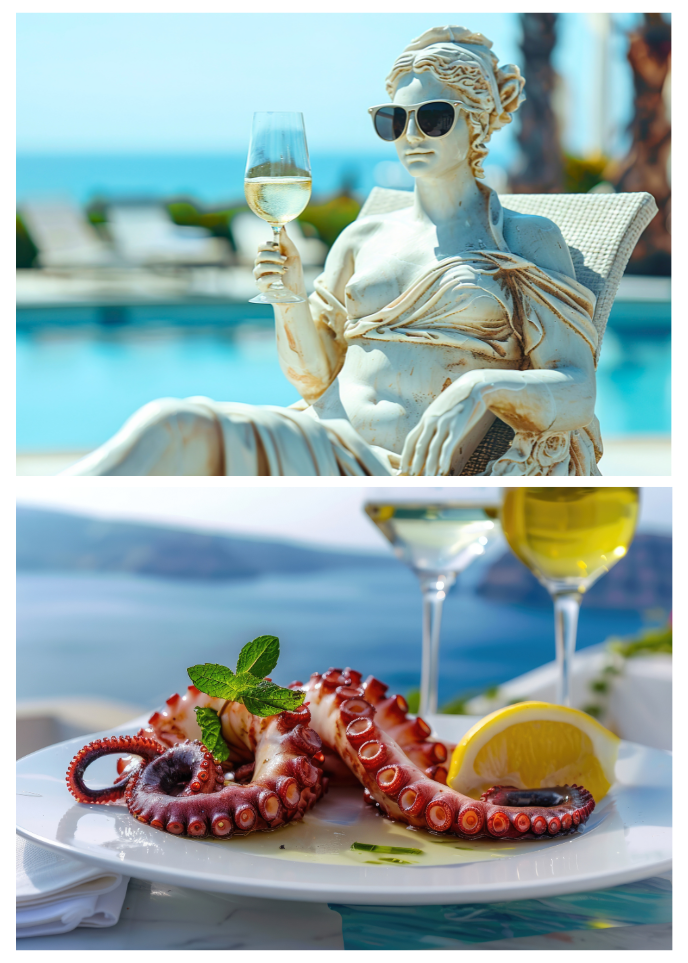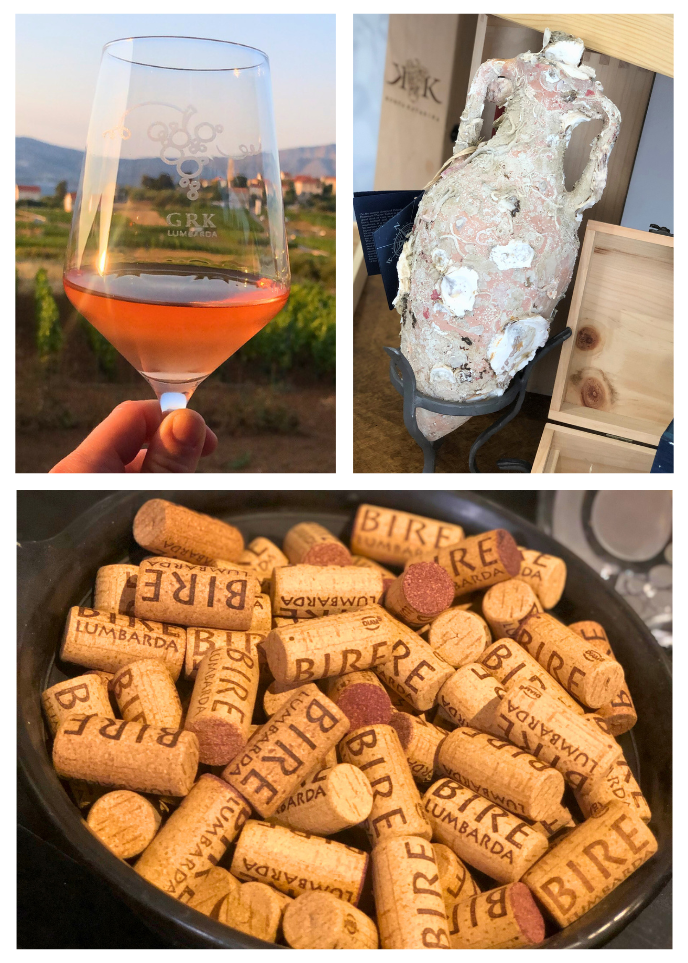Winemaking and the Versatility of Assyrtiko
Assyrtiko’s versatility as a grape variety is evident in the wide range of wine styles it can produce. This adaptability is one of the reasons why Assyrtiko has gained such a strong following among winemakers and consumers alike.
On Santorini, winemakers have mastered the art of crafting both dry and sweet wines from Assyrtiko, each showcasing different facets of the grape’s character. One of the most renowned styles is Vinsanto, a sweet wine made from sun-dried Assyrtiko grapes. The grape’s natural susceptibility to oxidation is skilfully managed during the production of Vinsanto, resulting in rich, nutty wines full of dark fruit flavours, with notes of fig, coffee, kirsch, and chocolate.
In addition to its use in sweet wines, Assyrtiko is celebrated for its dry white wines, prized for their freshness, minerality, and high acidity. These wines often exhibit a bright yellow-gold colour and a complex aromatic profile that includes mineral notes, citrus blossom, pear, and apple. Some winemakers choose to ferment Assyrtiko in oak barrels, adding further depth and complexity, while others emphasize the grape’s natural purity using stainless steel or concrete tanks.
Regardless of the winemaking approach, Assyrtiko’s naturally high acidity ensures that the wines are well-structured and capable of ageing for many years, developing additional layers of flavour and complexity.
Assyrtiko’s distinct minerality and high acidity make it an excellent companion for a variety of dishes, particularly those rooted in Mediterranean and Greek cuisine. The crisp, fresh profile of a dry Assyrtiko pairs beautifully with seafood dishes, such as grilled octopus, lemon-drizzled calamari, or traditional Greek seafood pasta.
The wine’s vibrant acidity also complements richer dishes like moussaka or lamb souvlaki, cutting through the fat and enhancing the flavours. For those enjoying a glass of Vinsanto, the sweet, complex notes of the wine are best paired with desserts like baklava or dark chocolate, which harmonize with the wine’s rich, nutty undertones.
Wine Critics' Remarks on Assyrtiko
Assyrtiko has garnered high praise from wine critics worldwide, solidifying its status as a grape of exceptional quality and character. Yiannis Karakasis MW, in his book The Wines of Santorini, lauds Assyrtiko as the flagship of Greek wine, highlighting its "magnificent combination of ripeness and razor-sharp acidity."
Esteemed wine critic Jancis Robinson MW has also drawn attention to Assyrtiko’s remarkable ability to stand toe-to-toe with renowned white wines like Riesling and Chablis, noting that in blind tastings, it can be nearly impossible to distinguish a top Assyrtiko from these esteemed counterparts.
Critics have emphasized Assyrtiko’s unique expression of its volcanic terroir, with its intense minerality and vibrant acidity making it a favourite in fine dining establishments and among wine connoisseurs. The grape's ability to age gracefully, developing complex layers of flavour over time, further cements its place as a world-class variety deserving of its growing reputation.
Assyrtiko's Influence Beyond Santorini
While Santorini remains the heartland of Assyrtiko, the grape’s success has led to its cultivation in other regions of Greece and internationally. In recent years, Assyrtiko has been planted in several Greek regions outside Santorini, such as Drama in Greek Macedonia, where it has adapted well to different terroirs. These mainland Assyrtiko wines often retain the grape’s signature acidity and minerality but may display a slightly different flavour profile influenced by local climate and soil conditions.
Assyrtiko has also made its mark internationally, most notably in Australia’s Clare Valley. Jim Barry Wines was the first to introduce Assyrtiko to Australia, using cuttings from the Argyros Estate on Santorini. The grape has adapted well to the Australian climate, producing wines that maintain Assyrtiko’s hallmark freshness and minerality while reflecting the unique characteristics of the Clare Valley terroir.
This global expansion has led to comparisons between Assyrtiko and other prestigious white wine varieties, such as Riesling and Chardonnay. However, wine enthusiasts should be mindful that the best expressions of Assyrtiko often come from Santorini’s PDO wines, where the volcanic terroir is most pronounced.





